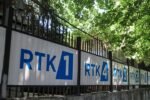German Chancellor Friedrich Merz has chaired the first meeting of the country’s newly established National Security Council, with hybrid threats from Russia topping the agenda.
Germany has repeatedly accused Moscow of waging “hybrid warfare” — a mix of sabotage operations, espionage, and disinformation campaigns — aimed at undermining European stability and democratic institutions.
Focus on Countering Russian Sabotage and Espionage
Government spokesman Stefan Kornelius said the meeting focused on adopting an interministerial action plan designed to counter hybrid threats.
“The plan includes measures to strengthen espionage countermeasures and protect critical infrastructure,” Kornelius told reporters.
“This is the government’s response to the increasing number and intensity of hybrid threats against Germany, particularly from Russia,” he added.
Recent months have seen drone overflights near airports and sensitive military sites across Germany, raising concerns about potential surveillance or sabotage operations.
Reducing Strategic Dependency on Raw Materials
In addition to security concerns, the council discussed Germany’s strategic dependency on essential raw materials, with the government pledging to deliver an action plan for supply diversification before the end of the year.
The new National Security Council, which includes representatives from key ministries, intelligence services, research institutes, and the private sector, has been tasked with analyzing security risks and developing coordinated responses to emerging threats.
Chancellor Merz first proposed the creation of this body earlier this year, prior to the February parliamentary elections, citing the need for a unified approach to Germany’s evolving security landscape.
A Response to Moscow’s Unconventional Tactics
Berlin’s move reflects growing alarm across Europe over Russia’s unconventional warfare tactics, which have included cyberattacks, political interference, and disinformation campaigns targeting Western democracies.
Analysts say the establishment of the National Security Council signals Germany’s intent to adopt a more proactive and coordinated national defense strategy, aligning with broader EU and NATO efforts to counter Russian influence.







